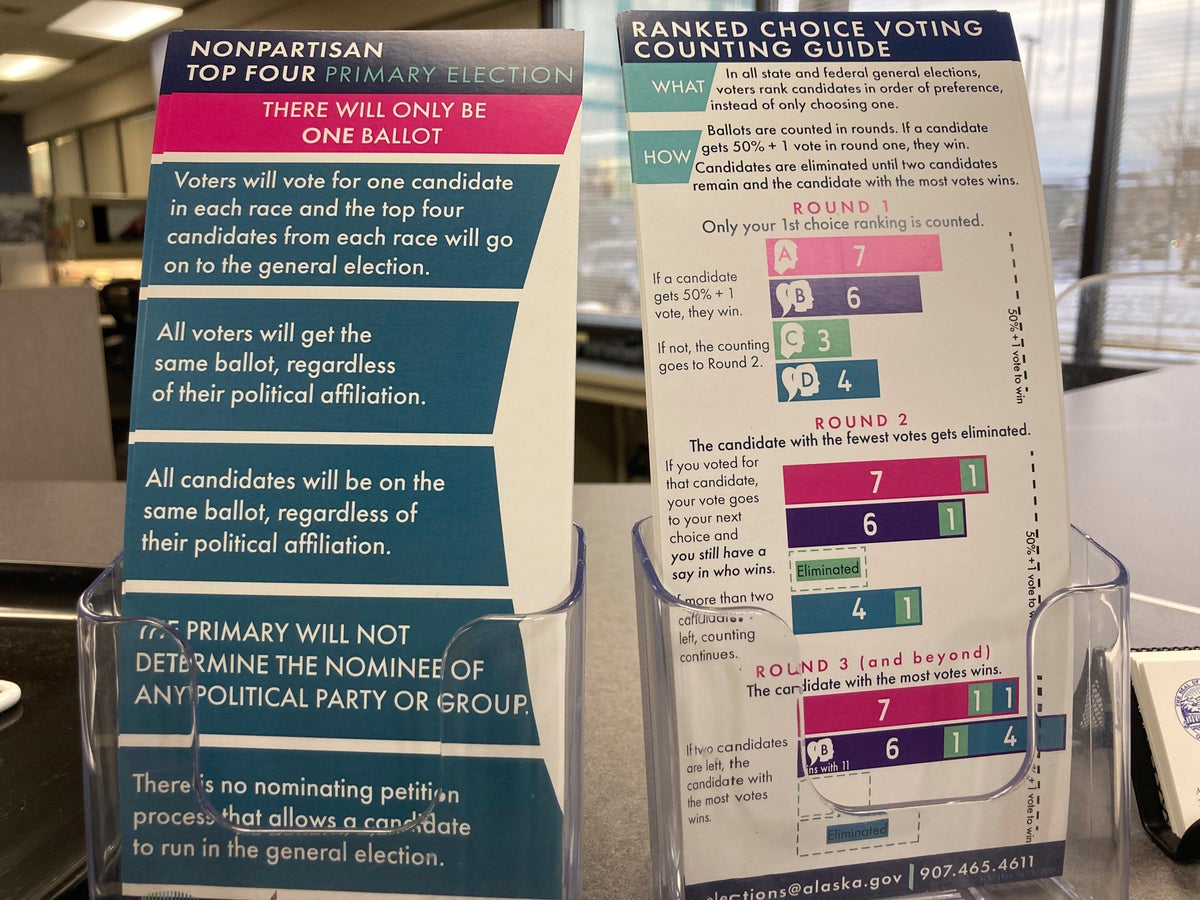
One voter, one ballot. Sure. But in Alaska this year, that's not the whole story.
Alaska voters face a sort of poll within a poll, where they'll rank their choices as part of a new system that kicked off earlier this year.
The first ranked choice contest under the system was an August special election won by Democrat Mary Peltola, the first Alaska Native to serve in the Congress and first woman to hold Alaska's only House seat. She emerged from a field that included Republican Sarah Palin to serve the remainder of the term of the late Republican Rep. Don Young, who died in March.
The general election includes a rematch in the House race, featuring Peltola, Palin and Republican Nick Begich, with the winner of that contest earning a two-year term. On the ballot as well are as contests for U.S. Senate, House and governor and Legislature.
Most Americans are used to casting their ballot for a single person for each office, but with a fierce contest for control of the Senate and House on the line this year, Alaska's races will unfold in the overhauled ranked choice system.
So let's take a closer look.
WHAT IS RANKED CHOICE VOTING AND WHY DO IT?
Instead of picking a single candidate for office, voters are given the choice to rank who they want to fill a particular seat.
This avoids scenarios in which multiple candidates seeking office could result in the winner failing to top 50% of the vote, backers say.
Supporters also say ranked voting could lead to more civil elections, with candidates competing not just for an outright victory but for second choice votes, too.
Critics argue it can be confusing.
HOW DOES IT WORK?
Voters rank their choices by preference, with votes being counted in rounds. If a candidate wins over 50% in the first round, it's over. If not, round two starts with the candidate who got the fewest votes in the first round being eliminated. If the eliminated candidate was your vote then your next choice gets your vote in this round.
In Alaska, rounds continue until two candidates are left and the one with the most votes wins.
This fall's election is set for Nov. 8, but that's just round one. Additional rounds of counting, if necessary, won't happen until Nov. 23.
WHAT STATES USE THIS KIND OF VOTING?
Alaska voters in 2020 approved a system that includes open primaries and ranked voting in general elections and the state Supreme Court upheld the system in a legal challenge earlier this year.
Maine was the first state to go with ranked choice voting for certain races, but no others have followed. Massachusetts voters defeated a ballot question on ranked voting in 2020.
A handful of cities across the country have implemented ranked voting, and military and overseas voters in a number of Southern states have access to it as well, according to the nonpartisan, nonprofit Fair Vote.
Nevada voters are voting on a ballot question this year to have open primaries and ranked voting for the general election, but the question must go before voters again in 2024 and pass then in order to go into effect.
WHAT ARE THE STAKES?
Candidates for the state's sole House seat include Peltola, Begich, Libertarian Chris Bye and Palin, who was the governor and the GOP vice presidential nominee in 2008.
Peltola's victory this summer was a boon to Democrats. Young, a Republican, held the seat for 49 years. In a year when Democrats face headwinds because of inflation and President Joe Biden's sagging approval ratings, a pickup in Alaska would buoy the party.
Republican U.S. Sen. Lisa Murkowski, who has been in the Senate nearly 20 years, is seeking reelection in a contest that includes the Donald Trump-endorsed Republican Kelly Tshibaka as well as Democrat Pat Chesbro.
Republican Gov. Mike Dunleavy is seeking a second term. His challengers are Democrat Les Gara, former Gov. Bill Walker, an independent, and Republican Charlie Pierce.
___
Mike Catalini can be reached at https://twitter.com/mikecatalini







